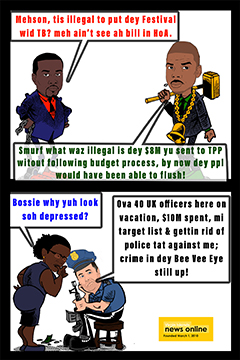New EU migrants add £5bn to UK, report says
Immigrants from the 10 countries which joined the EU in 2004 contributed more to the UK than they took out in benefits, according to a new study.
They added £4.96bn more in taxes in the years to 2011 than they took out in public services.
The report was published by University College London's Centre for Research and Analysis of Migration.
Immigration minister James Brokenshire said it had not taken account of the pressures on public services.
And campaign group Migration Watch criticised the report for its selective use of dates.
The report, The Fiscal Effects of Immigration to the UK, is published by the Royal Economic Society in the Economic Journal.
Accession countries
The countries that joined the EU in 2004 - know as the Accession Ten, or A10 - were Cyprus, the Czech Republic, Estonia, Hungary, Latvia, Lithuania, Malta, Poland, Slovakia and Slovenia.
The analysis included migrants' share of all public services costs, covering those that increase when the population increases, such as health and education, and those that stay fixed, such as the armed forces and defence.
If the fixed costs are excluded, the net benefit of immigration from these countries would more than double to £10.5bn, the report said.
The study also said immigrants from the wider European Economic Area - the European Union plus Norway, Iceland and Liechtenstein - had made a positive financial contribution to the UK.
It found that:
- EEA immigrants had made a fiscal contribution of £4.4bn between 1995 and 2011, non-EEA immigrants had made a negative net contribution of £118bn, and British people had made a negative net contribution of £591bn
- More recently, between 2001 and 2011, European arrivals contributed £20bn and those from outside Europe £5bn
- Immigrants who arrived since 2000 were 43% less likely than British people to receive state benefits or tax credits, and 7% less likely to live in social housing
"Our new analysis draws a positive picture of the overall fiscal contribution made by recent immigrant cohorts, particularly of immigrants arriving from the EU."
He added: "European immigrants, particularly, both from the new accession countries and the rest of the European Union, make the most substantial contributions.
"This is mainly down to their higher average labour market participation compared with natives and their lower receipt of welfare benefits."
Pressure on services
Migration Watch chairman Sir Andrew Green told the BBC: "If you take all EU migration including those who arrived before 2001 what you find is this: you find by the end of the period they are making a negative contribution and increasingly so.
"And the reason is that if you take a group of people while they're young fit and healthy they're not going to be very expensive, but if you take them over a longer period they will be."
He added: "This report confirms that immigration as a whole has cost up to £150bn in the last 17 years.
"As for recent European migrants, even on their own figures - which we dispute - their contribution to the exchequer amounts to less than £1 a week per head of our population."
What do you make of the study - does it change your view on immigration? The BBC News Channel will have a special Q&A session with home affairs correspondent Danny Shaw at 13:30 GMT. Send your questions by text to 61124 or by email tohaveyoursay@bbc.co.uk. A live Q&A will continue on Twitter straight after. Join in by using the hashtag #AskBBCDanny.
He said that people in the UK had to decide whether the extra pressure on schools, maternity units, and other services were worth an extra £1 a week.
Mr Brokenshire said the report had taken "a very narrow focus".
"It's not properly addressed the issues of the pressures of public services," he said. "There's things that I think rightly concern the public on access to schools, hospitals, roads, housing.
"We do need a sustainable immigration system bringing it down from the hundreds of thousands to the tens of thousands because it is those pressures that we see."
Political debate
Shadow immigration minister David Hanson said: "This report shows that immigration since 2001 has contributed to the public finances as well as to the economy.
"However, the impact of different kinds of immigration varies and the system needs to be fair - so we need stronger border controls to tackle illegal immigration and stronger action against employers who use immigration to undercut local wages and jobs, but we should welcome international university students who bring in billions."
UK Independence Party spokesman Steven Woolfe said that while it was clear immigration could be economically advantageous, the study did not show "what wealth our own people could have generated if they weren't subjected to wage-reducing, employment-displacing mass immigration from the EU".
"Nor does it truly take into account the opportunity costs to the UK of substituting large sections of Britain's workforce with migrant labour," he said.
Katerina Davies, who has as worked and paid taxes in the UK since she moved from the Czech Republic in 2007, said more should be done to help integrate migrants into communities.
She told the BBC: "Integration is the best way forward if there is a problem with cultural differences. I think if you come to a country and decide to live there you should accept their culture; obviously keep your own identity but accept the law and the culture you're moving to."
Prime Minister David Cameron has vowed to renegotiate the terms of the UK's membership of the EU, before holding a referendum in 2017 on whether to leave, if he is re-elected in six month's time.
But the German chancellor, Angela Merkel, has reportedly warned Mr Cameron that he was approaching the "point of no return" with proposals to restrict immigration.












.png)
























2 Responses to “New EU migrants add £5bn to UK, report says”